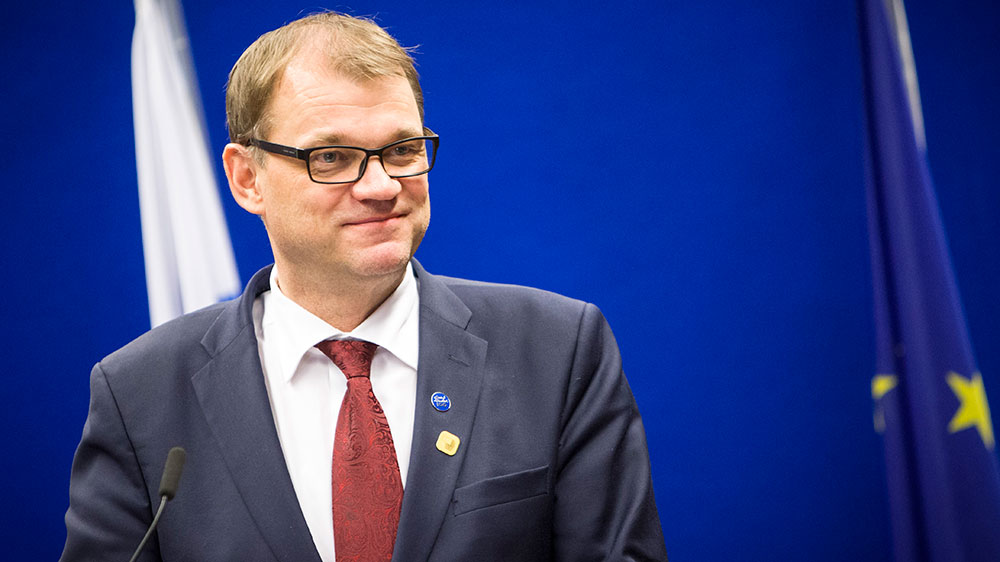EU leaders discussed the future of the EU in Brussels

At the informal European Council in Brussels on 23 February, Finland stressed that a balanced solution needs to be found for the next Financial Framework of the EU. In the discussion on the development of the Union Finland pointed out that the current balance of powers between the EU institutions needs to be maintained. The Finnish representative at the informal meeting of the EU Heads of State and Government and the Conference on Sahel held before that was Prime Minister Juha Sipilä.
The Heads of State and Government held the first political discussion on the Multiannual Financial Framework that will start in 2021. The negotiations will get started after the European Commission has given its proposal in the beginning of May. Now the discussion focused on the total level of the next framework and how the funds are to be used in future.
As the opinion of Finland, Prime Minister Sipilä stressed that Brexit must be fully accounted for in the total level of the financial framework.
”The obvious way to think is that the gap in the framework left by Great Britain will not be filled. The EU-27 of the future must cope with a smaller budget. In our view the future level should be about the same as it is now, about one per cent of the sum of the Member States’ GDPs”, Prime Minister Sipilä says.
”Because of the new and emerging needs and any surprising situations that may arise, a measure of flexibility is needed at the total level. The Union budget must be better capable of responding to topical needs, including research and innovation policy to promote competitiveness, growth and employment in Europe. Common inputs are needed for defence and migration, while for Finland it is also important to secure the support schemes concerning agriculture and cohesion”, he points out.
The other main theme of the meeting was the development of EU institutions. In this discussion the focus was on the lead candidate practice in electing the European Commission President.
“It is important that the Commission President has the full trust of both the Member States and the European Parliament. In electing the Commission President we should continue with the current practice, which is based on the Treaty on the European Union”, Prime Minister Sipilä says.
The European Parliament has suggested that the lead candidate of the political group that wins the parliamentary election would be automatically elected as the Commission President.
In terms of the composition of the Commission Finland considers it important that each country has its own Commissioner, also in future.
Finland has considered it appropriate that the European Parliament seats left vacant after Brexit would be filled by the future enlargements, that is, Brexit should also be reflected in the size of the institutions. The proposal of the Parliament that the number of seats would be cut from 751 to 705 has won wide support among the Member States.
These topics were also discussed at the informal dinner hosted by Belgium on Thursday, attended by Prime Minister Sipilä as well.
Prime Minister Sipilä was also the Finnish representative at the International High-Level Conference on Sahel, where the aim was to obtain financial pledges for a joint military force of five states in the Sahel region. The purpose of the force is to promote stability in the region by combatting crimes such as terrorism, drug trade and human trafficking. Finland has decided to pledge EUR 900,000 for this cause.
Inquiries: Kare Halonen, State Secretary, EU Affairs, tel. +358 295 160 319, Jani Raappana, Special Adviser (international affairs), tel. +358 50 566 7889 and Anne Sjöholm, Head of Communications for EU Affairs, tel. +358 40 537 0733, Prime Minister’s Office